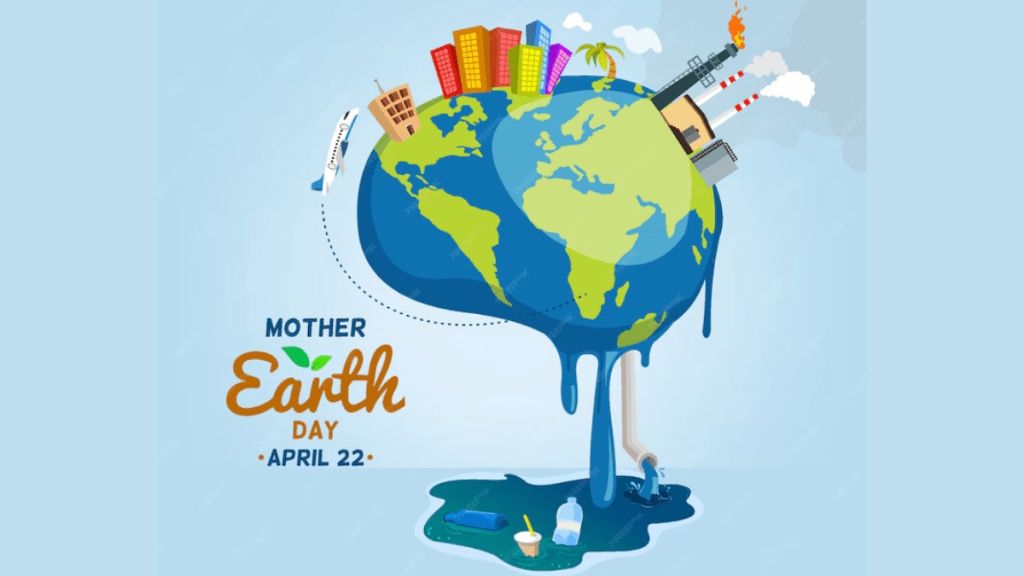Sustainability has been a ‘buzz’ word for over a decade now, and the horizon has only expanded over the time. The so-called definition of sustainability is now no more limited to what earlier was understood as reduce, reuse and recycle the natural resources for the future generations. However, the Gen-Z era has a much more in-depth understanding of ‘sustainability’ with masses opting for sustainable life options such as choosing organic products, opting for electric vehicles, among others.
Not only does the masses but companies are also going green with sustainability goals as this year’s World Earth Day theme focuses on ‘Planet v/s Plastic’. “As we celebrate Earth Day, it’s paramount to emphasise the pivotal role of energy efficiency in climate action and to redefine the significance of demand management in the energy transition. Innovation serves as a catalyst for these transitions, with emerging technologies offering promising solutions to optimise energy usage and resource utilisation. Concurrently, there’s a pressing need to prioritise inclusive capacity building within this rapidly evolving landscape, fostering innovation to carve out new pathways for progress,” Satish Kumar, president and executive director, AEEE, told FE Online.
As per a study by Futurescape, around 80% of top 100 companies incorporate sustainable development goals (SDG) into their responsible business actions. All the top 25 companies map their business goals with sustainable development goals. Interestingly, the sectors leading here are IT and telecom where 75% and more companies have mapped their goals with sustainable development goals. The report further highlights that in terms of focus, gender equality, decent work, good health & well-being, quality education, climate action, clean water and sanitation occupy the top position with over 85% of the companies reporting them.
Sustaining efforts –
Companies are tackling environmental preservation through multifaceted approaches such as promoting green commuting, which includes carpooling and rewarding staff members who use environmentally friendly modes of transportation. Going paperless, cutting down on paper waste with software, and printing on both sides of the page when needed are also some necessary steps. Using tinted glasses and installing energy-efficient AC units are two examples of temperature management strategies for offices.
Further to this, companies are now turning largely to solar energy to reduce the usage of fossil fuels. These initiatives aim to reduce the adverse impacts on the environment and promote sustainability in the workplace. “On World Earth Day, our focus is drawn to the pressing theme of ‘Planet Vs Plastic.’ It is alarming that the world produces about 400 million tonnes of plastic waste every year, while less than 10 percent of plastic ever produced has been recycled. With every piece of plastic in the ecosystem, we risk losing the very ground that sustains us,” Mahesh Girdhar, MD and CEO, EverEnviro Resource Management, opined.
Meanwhile, Axalta claimed that sustainability is the core of their business and they practise this concept through sustainable manufacturing, product development and application, innovation and community service. The company invests in R&D capabilities to create innovative coatings that meet the industry’s growing demand for environmentally friendly solutions. “Our waterborne coating technologies help to lessen customers’ environmental footprint. Cromax Pro and Standoblue, our key waterborne products, feature advanced waterborne technology that enhances productivity and helps to decrease the industry’s overall environmental footprint by reducing VOCs, energy consumption and investment, facilitating the sustainable development of India’s automotive industry,” Lokender Pal Singh, Business Director, Refinish- South Asia and Value Line- ASEAN, Axalta, explained.
Focus on water wastage
Industry experts believe that recycled water systems in restrooms drastically cut down on water usage, solving issues with waste management and conservation. Another major initiative counts reusable glass water bottles for staff members. “By taking these steps, the usage of single-use plastic is reduced and water resources are preserved. Spreading awareness among employees about the value of water conservation also helps to create a sustainable culture at work,” Kannan Sivasubramanian, CEO, Aranca, said.
For Axalta, all its manufacturing units implement systems that capture and treat water that is used in production processes for reuse, hence water recycling and reuse are integrated within the production process. “Water-efficient machinery and equipment are used to minimise water usage. In its 2030 Sustainability goals, Axalta aims to achieve a 10% reduction of process waste, VOC emissions, and water use from operations,” Lokender Pal Singh, Business Director, Refinish- South Asia and Value Line- ASEAN, Axalta, added. He further pointed out that the company’s waterborne coatings use water as the primary solvent, which has lower VOCs that are required for traditional solvent based paints that ensures easier cleanup with less water.

